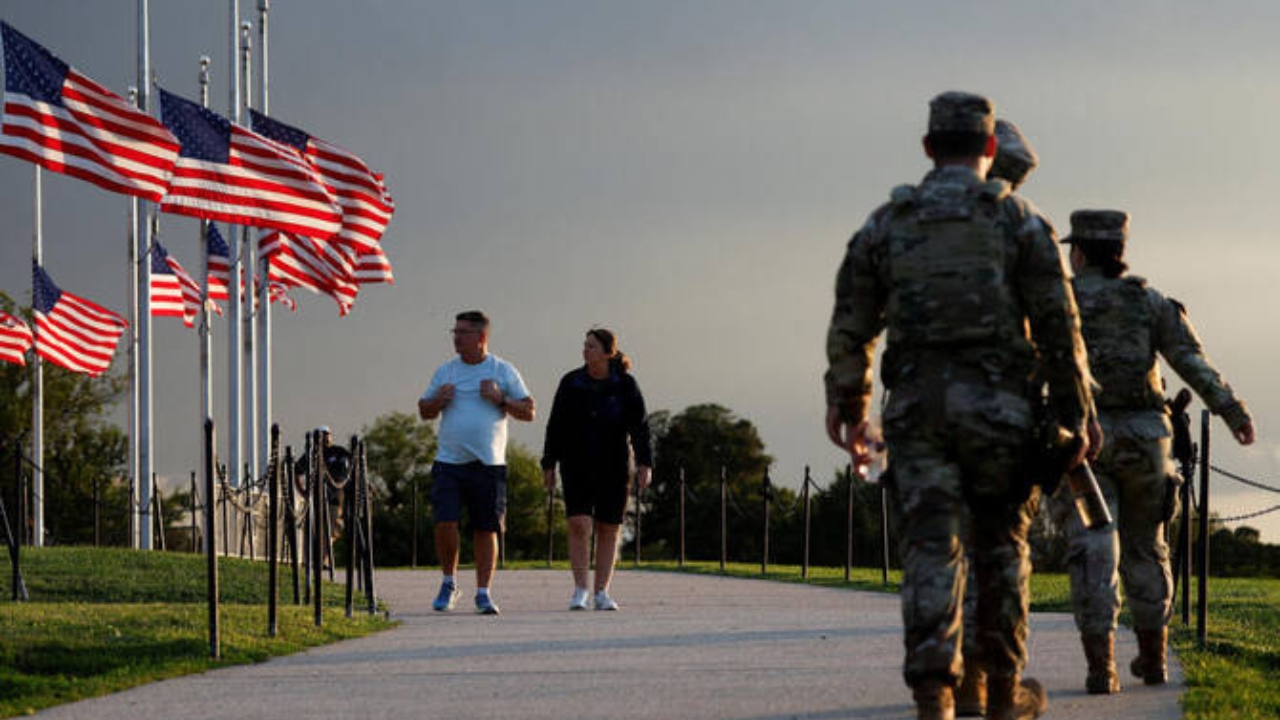
UAE and Yemen Strengthen Legal and Judicial Cooper
UAE and Yemen attorney generals met in Abu Dhabi to strengthen legal ties, enhance public prosecutio

Photo:Reuters
President Donald Trump recently announced that the National Guard will be deployed to Memphis, Tennessee, with the aim of tackling crime in the city. This decision has sparked significant discussion and analysis given the complex crime trends in Memphis and the broader national context of public safety interventions in U.S. cities.
Crime Situation in Memphis: Facts and Trends
Contrary to some perceptions of rising lawlessness, recent data from the Memphis Police Department (MPD) shows that overall crime in Memphis has actually dropped to a 25-year low in 2025. Key crimes such as robbery, burglary, larceny, homicide, aggravated assault, and sexual assault have all declined significantly compared to previous years. Murder rates, for example, have hit six-year lows, representing ongoing progress through law enforcement efforts and community programs. These improvements reflect focused policing strategies and increased collaboration between local, state, and federal agencies, alongside community engagement programs aimed at reducing gun violence and repeat offenders.
Yet despite these positive trends, Memphis continues to face challenges with crime, especially in certain neighborhoods where violence and illegal activities persist. Community leaders and residents remain concerned about the safety of their streets and the potential for violence to resurge without continued attention and resources.
Trump's Decision and the Political Context
President Trump’s announcement comes as part of his broader national initiative to address crime in major cities, particularly those led by Democratic administrations. After previously deploying the National Guard and federal law enforcement to Washington D.C. and Los Angeles, the president has chosen Memphis as the next city for federal intervention.
Trump justified the deployment by calling Memphis "deeply troubled" and expressed confidence that the National Guard, along with other federal resources, will help restore safety and order. He noted that Memphis' mayor, a Democrat, and Tennessee’s Republican governor both support the deployment, contrasting this with resistance he faced from Chicago’s city and state officials when he proposed similar actions there.
The announcement also reflects ongoing debates about the federal role in city policing. While federal intervention can bring resources and attention, it also raises questions about state and local control, civil liberties, and the long-term impact of militarized approaches to crime prevention.
Community Views and Concerns
Reactions in Memphis are mixed. Some local officials and residents welcome the additional support, hopeful it will reduce crime and enhance security in vulnerable neighborhoods. The backing from both the city mayor and governor suggests a political willingness to collaborate on this intervention.
However, other voices caution against relying solely on military-type solutions. Community activists emphasize the importance of investing in education, job creation, mental health services, and community development as sustainable ways to prevent crime. They warn that a heavy security presence could lead to increased tensions and distrust between residents and law enforcement, potentially undermining community cohesion.
Broader Implications
This deployment underscores a broader national challenge: how best to ensure safety in American cities without exacerbating social divisions or neglecting root causes. The U.S. is grappling with balancing law enforcement, community trust, and socio-economic factors driving crime rates.
Trump’s approach, emphasizing law and order, resonates with many who feel unsafe and demand swift action. Yet experts and advocates argue that long-term crime reduction requires comprehensive strategies addressing poverty, inequality, education, and community health.